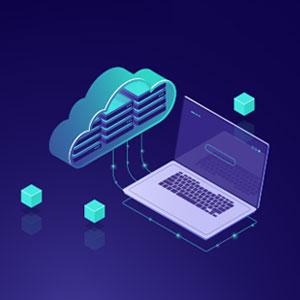Data Science Online Course
Enhance your data science abilities with one of India’s premier data science courses. Become a proficient data scientist through our in-depth data science course, where you’ll learn from industry professionals and engage in hands-on projects. Develop proficiency in Python, SQL, Machine Learning, Artificial Intelligence, Big Data, PowerBI, and more.
Data Science Course Key Highlights
Live coaching
Learn from engaging & interactive video lessons
Designed for beginners
In depth sessions with quality study materials for beginners
One-on-one Sessions
Our one-on-one session provides proper clarity on the subjects
Best Data Science Courses
Take a look at the top-notch data science courses available at Brainalyst. Here is the list of courses is perfect for beginning your career and acquiring the necessary skills and knowledge to progress in the field of data science.
About our Data Science Course
If you’re curious about data science and eager to explore its impact on business decisions, you’ve come to the right place. Welcome to our website, the perfect gateway for those interested in this fascinating field.
At Brainalyst, our comprehensive data science course introduces you to key concepts, techniques, and tools in this rapidly expanding domain. From analysis and visualization to machine learning and statistical modeling, our course covers it all, providing an in-depth understanding of data science processes.
Led by experienced experts, our course curriculum is carefully crafted to stay up-to-date with emerging trends and techniques, ensuring you learn relevant and practical skills.
Convenience is paramount, which is why our course is delivered online, allowing you to learn at your own pace from the comfort of your home. Expert instructors are readily available to answer questions and provide guidance throughout your learning journey.
By the end of our data science course, you’ll have a solid foundation in Python and R for data visualization and analysis. Additionally, you’ll be able to create machine learning models using these languages and evaluate their performance through statistical modeling, empowering you to make data-driven decisions. Furthermore, you’ll develop effective communication skills to articulate your findings to non-technical stakeholders.
In addition, we offer optional modules on deep learning, natural language processing, and data engineering, providing you with a deeper understanding of specific areas within data science and expanding your capabilities.
At Brainalyst, we firmly believe in the transformative power of data science in revolutionizing business operations. Our course equips you to embark on an exciting career path, unlocking the full potential of this dynamic field.
Data Science Course Eligibility
The eligibility criteria for a data science course may vary depending on the institution or program, but generally include the following:
- A bachelor’s degree in a related field such as computer science, statistics, mathematics, engineering, or other quantitative disciplines.
- Strong analytical and problem-solving skills. Additionally, prior experience or knowledge in programming languages such as Python or R is beneficial. Moreover, knowledge of statistics and machine learning concepts is usually required.
- Some programs may require a minimum GPA or other academic qualifications.
- Furthermore, certain data science programs might have prerequisites like math, statistics, or programming.
Data Science Course Syllabus
Data science courses provide students with a comprehensive understanding of the rapidly evolving field. These courses cover a wide range of topics, including:
Fundamentals of Data Science: This course introduces key concepts, techniques, and tools used in data science, offering an overview of the entire workflow.
Data Wrangling: The data wrangling course focuses on gathering, cleaning, and organizing data before analysis. It explores areas such as data scraping, cleansing, transformation, and visualization.
Data Exploration and Visualization: Students gain a deep understanding of data to uncover insights in this course. Topics include descriptive statistics, data visualization, exploration, and descriptive analytics.
Data Modeling: The data modeling course involves creating mathematical models for prediction and classification. It encompasses various types of models, including supervised, unsupervised, and deep learning.
Data Communication: Effective data communication is essential for conveying insights to stakeholders. This course explores storytelling, visualization techniques, and governance processes for clear data communication.
Tools and Technologies: Data science courses introduce students to essential tools and technologies, such as programming languages like Python and R, as well as libraries and frameworks like Numpy, Pandas, Scikit-Learn, and TensorFlow.
Big Data: The big data course covers concepts and technologies for managing and processing large datasets. This includes distributed computing, parallel processing, and data storage technologies.
Applications: Data science finds practical applications in various domains, including healthcare, finance, and marketing. This course explores how data science is applied in these fields.
Please note that the specific content of data science courses may vary depending on the institution or program. It is recommended to contact the institution directly to confirm the syllabus and course details.
Our Faculty
Our Data Science faculty team consists of professionals specializing in fields related to data science, such as analytics, machine learning, and engineering. They bring a wealth of experience, encompassing data analytics, machine learning, data engineering, and practical applications.
Additionally, they provide real-world examples and case studies derived from their practical experience. Moreover, each faculty member possesses extensive research and teaching credentials, demonstrating their unparalleled expertise in the latest techniques and tools used in data science.
Want to Know More?
Things you will learn in Data science course

- Learn foundational R programming skills as they are needed in over 70% of data science jobs.
- Learn the fundamentals of Python and more.
- Learn basic data science concepts through engaging real-life case studies.
- No prior data science or computer science knowledge is needed.
- Learn to implement machine learning algorithms
- Learn to analyze big data sets, create probabilistic models that make data-driven predictions, and utilize methods for extracting useful information that aid decision-making processes.
- Discover all aspects of data science from data acquisition to publication in one convenient place.
- Maintain a delicate equilibrium between theory and practice of processing large-scale data sets
- Develop multiple models using formal techniques and methodologies of abstraction that can be automated to solve real-world problems.
Data Science Pro Reviews
The Brainalyst Data Science course was incredibly comprehensive and informative. I learned so much about data analysis, visualization, and machine learning, and I now feel confident in my ability to apply these skills in a professional setting

Data Science Certification.
Our Data Science course is in-depth, and this certificate confirms that you have made significant progress in your mastery of the field.
Frequently Asked Questions
You will have an advantage over the competition because of the knowledge and Data Science skills you have acquired working on projects and case studies.

Data science is a field that involves using scientific methods, processes, algorithms, and systems to extract knowledge and insights from structured and unstructured data. Additionally, it encompasses various techniques, including machine learning, statistical modeling, data visualization, and mining. Moreover, it is used to inform business decisions, develop new products and services, and solve complex problems in various industries.
A data science course is a program of study that provides students with an understanding of the concepts and techniques used in data science. In addition, these courses typically cover various topics, including statistics, programming, machine learning, data visualization, and data mining. Furthermore, they may also include hands-on projects and exercises to help students apply what they have learned to real-world problems. Moreover, some data science courses focus on specific industries, such as healthcare or finance, while others provide a general introduction to the field.
Data Science is a rapidly growing field with a high demand for skilled professionals. Career opportunities include Data Scientist, Data Analyst, Machine Learning Engineer, and more.
Considering the increasing demand for Data Science and Analytics, some basics Data Science requirements are necessary for those who wish to learn it online.
Mathematical Skills are considered one of the major prerequisites for taking data analytics courses. They are considered good at mathematical concepts, such as linear algebra, matrices, calculus, gradients, etc.
Programming Skills are considered helpful in gaining complete knowledge and understanding throughout the Data Science online course, having a concise knowledge of programming, such as Python, C, C++, SQL, Java, etc.
Data Processing is considered necessary as Data Science is all about dealing with data, and an individual is expected to be familiar with data mining, data modeling, data processing, etc.
Statistical Analysis is considered a great asset to learning Data Science, as it aims to extract valuable insights from a vast data collection. It is expected that experience working with analytical tools such as Hadoop, R, SAS, and many more will be used in efficiently performing the statistical analytics of the given data.
Data Visualization Skills help comprehend complex outcomes and let the audience understand the metrics, knowing the data visualization tools such as Matplottlib, Tableau, and many more.
Data science is a field that involves using statistical techniques, programming skills, and domain knowledge to extract insights from data. Moreover, a data science course is designed to teach these skills and provide a solid foundation in the field.
In addition, anyone interested in data, statistics, and programming can take a data science course. Furthermore, this includes students in computer science, statistics, mathematics, and engineering. Additionally, professionals in business, finance, healthcare, and government fields can also benefit from taking a data science course.
Moreover, data science courses are also suitable for individuals looking to transition into a data-related career. Furthermore, some examples of these fields are Machine Learning Engineer, Data Analyst, Business Intelligence Analyst, Data Engineering, and Data Scientist.
Overall, the data science course is open to anyone interested in Data science and willing to learn.
The specific skills learned in a data science online course can vary depending on the course provider and curriculum. However, some common skills that are covered in a data science course include:
- Programming languages such as R & Python for data analysis and manipulation
- Use of data visualization tools to create compelling data-driven insights
- Working with big data using technologies like Hadoop and Spark
- Data cleaning, preprocessing, and feature engineering
- Understanding and using deep learning frameworks like TensorFlow or PyTorch
- Data modeling, data mining, and data analysis
- Familiarity with SQL, NoSQL, and other database management tools.
- Understand the importance of data security and the ability to implement security protocols.
With the increase in the need for data-driven solution for business organizations, there is a rapid increase in the need for data scientists with relevant Data Science skills.
This Data Science online course will help you become skilled in Data Science, R programming language, Python, SQL, Tableau, Excel, Data Visualization, Big Data, and more. This certification can quickly accelerate your profession in this evolving domain and bring it to the next level.
- Data scientists need to be aware of business pain points and ask the right questions.
- They need to collect enough data to understand the problem they are facing and better solve it in terms of time, money and resources.
- We rarely use data in its original form, and it needs to be processed, and there are several ways to convert it into a convenient format.
- Processing the data and converting it into a usable form, data scientists should examine it to identify characteristics and find obvious trends, correlations, and more.
- To understand the data, they use various tool libraries such as machine learning, statistics and probability, linear and logistic regression, time series analysis, and more.
- Finally, the results should be communicated to the relevant stakeholders, laying the foundation for solving all identified problems.
The average salary for a data scientist in India can fluctuate based on factors like industry, location, qualifications, and experience. According to Indeed, the average salary for a data scientist in India is around INR 8.9 Lakhs per annum. Entry-level data scientists can expect to earn between INR 5 Lakhs and INR 15 Lakhs per year, while more experienced data scientists can earn between INR 15 Lakhs and INR 30 Lakhs per year.
It is indeed possible to become a data scientist without a formal degree; however, it may pose some challenges. While a degree in fields like computer science, statistics, mathematics, or a related field can provide a solid foundation, many data scientists come from diverse backgrounds and have acquired the necessary skills through self-teaching, online resources, bootcamps, and training programs.
To pursue a career as a data scientist without a degree, the key is to focus on developing the required skills. This includes proficiency in programming languages like Python or R, knowledge of machine learning, expertise in data visualization, and a strong understanding of statistics. Practical experience working with real-world data and building models is equally important. This experience can be gained through internships, projects, or on-the-job training. Additionally, gaining domain-specific knowledge and industry expertise can enhance your prospects.
Overall, while a degree can be advantageous, becoming a data scientist without one is feasible by acquiring the necessary skills, gaining practical experience, and continuously learning in the ever-evolving field of data science.
A Data Science certification can be beneficial in demonstrating your skills and knowledge to employers. However, it is only sometimes necessary, and experience and a strong portfolio of projects can also be valuable in the job market.


















